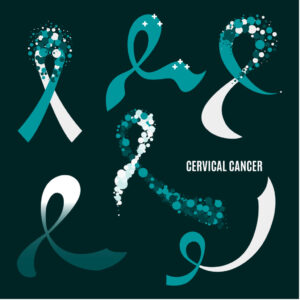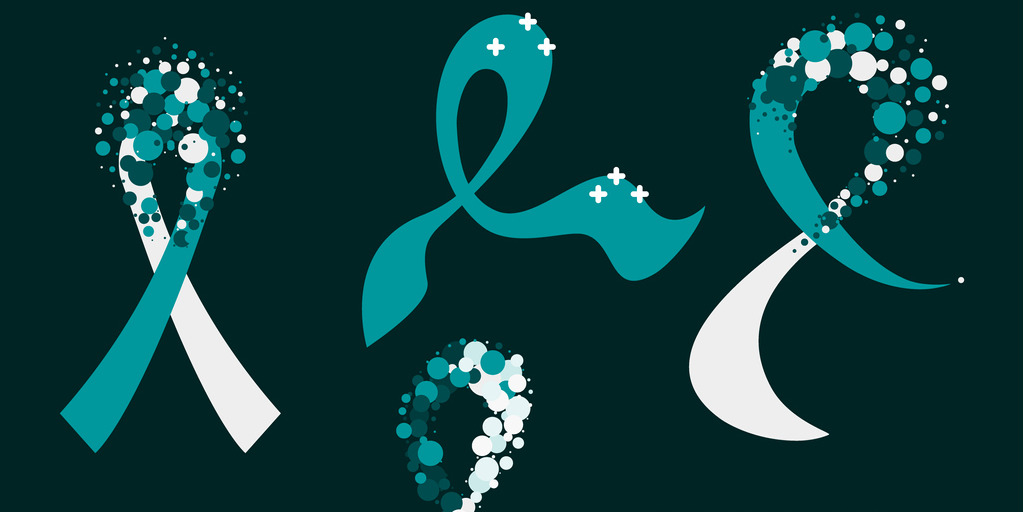Why Cervical Cancer Awareness Matters

January is Cervical Health Awareness Month, a national observance dedicated to educating women about cervical health, encouraging routine screening, and promoting prevention through early detection. Led by organizations such as the National Cervical Cancer Coalition (NCCC), this initiative highlights the fact that cervical cancer is one of the most preventable and treatable forms of cancer when detected early.
Despite advances in screening and vaccination, thousands of women in the United States are still diagnosed with cervical cancer each year, often because routine screenings were delayed or missed. Raising awareness empowers
women to take proactive steps to protect their health, understand their risks, and seek appropriate care before symptoms develop.
What Is Cervical Cancer?
Cervical cancer develops in the cervix, the lower portion of the uterus that connects to the vagina. Most cases begin as precancerous cellular changes, known as cervical intraepithelial neoplasia (CIN), which can progress slowly over time if left untreated. Because these early changes rarely cause symptoms, regular screening plays a critical role in identifying abnormalities before cancer develops.
The two most common types of cervical cancer include:
- Squamous cell carcinoma, which begins in the thin, flat cells lining the outer cervix, accounts for most cases
- Adenocarcinoma, which originates in the glandular cells of the cervical canal
In many cases, cervical cancer is linked to persistent infection with high-risk strains of the human papillomavirus (HPV), reinforcing the importance of preventive care and follow-up.
Epidemiology and Risk Factors
Cervical cancer remains a significant public health concern, though incidence and mortality rates have declined due to widespread screening and HPV vaccination. According to national cancer statistics, most cervical cancer cases occur in women who have not been routinely screened or who have limited access to preventive healthcare.
Key risk factors include:
- Persistent infection with high-risk HPV strains
- A history of abnormal Pap test results
- Smoking, which weakens the immune system and increases HPV persistence
- Long-term immunosuppression
- Limited access to regular gynecologic care
Women from underserved communities experience disproportionately higher rates of cervical cancer, underscoring the importance of education, access to screening, and early intervention during Cervical Cancer Awareness Month.
The Role of HPV in Cervical Cancer Development
Nearly all cases of cervical cancer are caused by persistent infection with high-risk strains of the human papillomavirus (HPV). HPV is one of the most common sexually transmitted infections, and in most individuals, the immune system clears the virus naturally. However, when high-risk HPV infections persist over time, they can cause abnormal cellular changes in the cervix that may progress to cancer if left untreated.
High-risk HPV types, particularly HPV 16 and HPV 18, are responsible for the majority of cervical cancer cases. Because HPV infection is often asymptomatic, many women are unaware they carry the virus until abnormal screening results appear. This is why routine Pap and HPV testing remains essential, even for individuals who feel healthy or have no symptoms. HPV-related cervical cancer is largely preventable through vaccination, regular screening, and timely follow-up care.
Cervical Cancer Screening and Early Detection
Cervical cancer screening is one of the most effective tools in cancer prevention. Screening allows healthcare providers to identify precancerous changes and early-stage cancers before symptoms develop, dramatically improving outcomes.
Current screening methods include:
- Pap tests, which examine cervical cells for abnormal changes
- HPV testing, which detects the presence of high-risk HPV strains associated with cervical cancer
Many screening guidelines now incorporate HPV testing alone or in combination with Pap testing, depending on a patient’s age and medical history. When abnormalities are detected, further diagnostic evaluation may include additional testing or imaging to assess disease extent and guide management.
Early detection significantly reduces cervical cancer mortality. When found at an early stage, cervical cancer has a high survival rate, reinforcing the importance of staying up to date with recommended screenings, even after childbearing years or menopause.
Signs and Symptoms of Cervical Cancer
In its early stages, cervical cancer often causes no noticeable symptoms, which is why regular screening is so important. As the disease progresses, symptoms may begin to appear and should never be ignored.
Common signs and symptoms of cervical cancer can include:
- Abnormal vaginal bleeding, such as bleeding between periods, after intercourse, or after menopause
- Unusual vaginal discharge, which may be watery, bloody, or have an odor
- Pelvic pain or pain during intercourse
- Persistent lower back or abdominal pain
These symptoms do not automatically indicate cancer, but they do warrant prompt medical evaluation. Cervical Cancer Awareness Month highlights the importance of recognizing changes in your body and seeking care early, when treatment is most effective.
Prevention Strategies: Lowering Cervical Cancer Risk
Cervical cancer is one of the most preventable cancers due to effective prevention strategies that target its primary cause, HPV.
Key prevention measures include:
- HPV vaccination, which protects against the most common high-risk HPV types linked to cervical cancer
- Routine cervical cancer screening, even for vaccinated individuals
- Timely follow-up care when abnormal results are found
The HPV vaccine is recommended for preteens but is also approved for many adults who were not vaccinated earlier. Combined with screening, vaccination has significantly reduced cervical cancer rates in populations with strong preventive care access. Research shows that HPV vaccination plus routine cervical screening delivers the greatest protection against cervical cancer, reducing the likelihood of infection and precancerous changes that can lead to invasive disease. Access to Care and Health Equity in Cervical Cancer Prevention
Despite advances in prevention and screening, cervical cancer continues to disproportionately affect underserved populations, including individuals with limited access to healthcare, lower incomes, or inconsistent screening histories.
Access to cervical cancer screening and follow-up care remains a critical public health issue, but financial assistance and support programs do exist. Federally supported initiatives, such as the National Breast and Cervical Cancer Early Detection Program (NBCCEDP), help uninsured and underinsured individuals access Pap tests, HPV testing, diagnostic services, and referrals for treatment. State and local health departments often partner with hospitals and imaging centers to deliver these services at low or no cost. Learn more about NBCCEDP.
In addition, many community health centers, women’s health clinics, and nonprofit healthcare organizations provide sliding-scale screenings, patient navigation services, and assistance coordinating follow-up care. These programs play a crucial role in reducing diagnostic delays and improving outcomes, especially for individuals who may otherwise face financial, geographic, or insurance-related barriers to care.
Cervical Cancer Awareness Month serves as a reminder that improving outcomes requires not only medical advances, but also equitable access to preventive care for all women—regardless of background, location, or insurance status.
Cervical Cancer Awareness Month: Turning Awareness Into Action
Cervical Cancer Awareness Month is a powerful reminder that prevention, early detection, and access to care save lives. Routine screening, HPV vaccination, and timely follow-up allow cervical cancer to be identified early, often before symptoms develop, when treatment is most effective. By understanding risk factors, recognizing warning signs, and staying up to date on recommended screenings, women can take proactive steps to protect their long-term health.
National initiatives continue to expand education and improve access to care, particularly for underserved communities. Raising awareness, encouraging open conversations with healthcare providers, and supporting preventive services are essential to reducing cervical cancer rates nationwide.
Greater Waterbury Imaging Center supports women’s health through advanced diagnostic imaging services designed for early detection and accurate evaluation. Our experienced team works closely with referring providers to deliver timely, patient-focused care in a comfortable setting. Contact GWIC to learn more about MRI services that support women’s imaging needs and preventive care.


